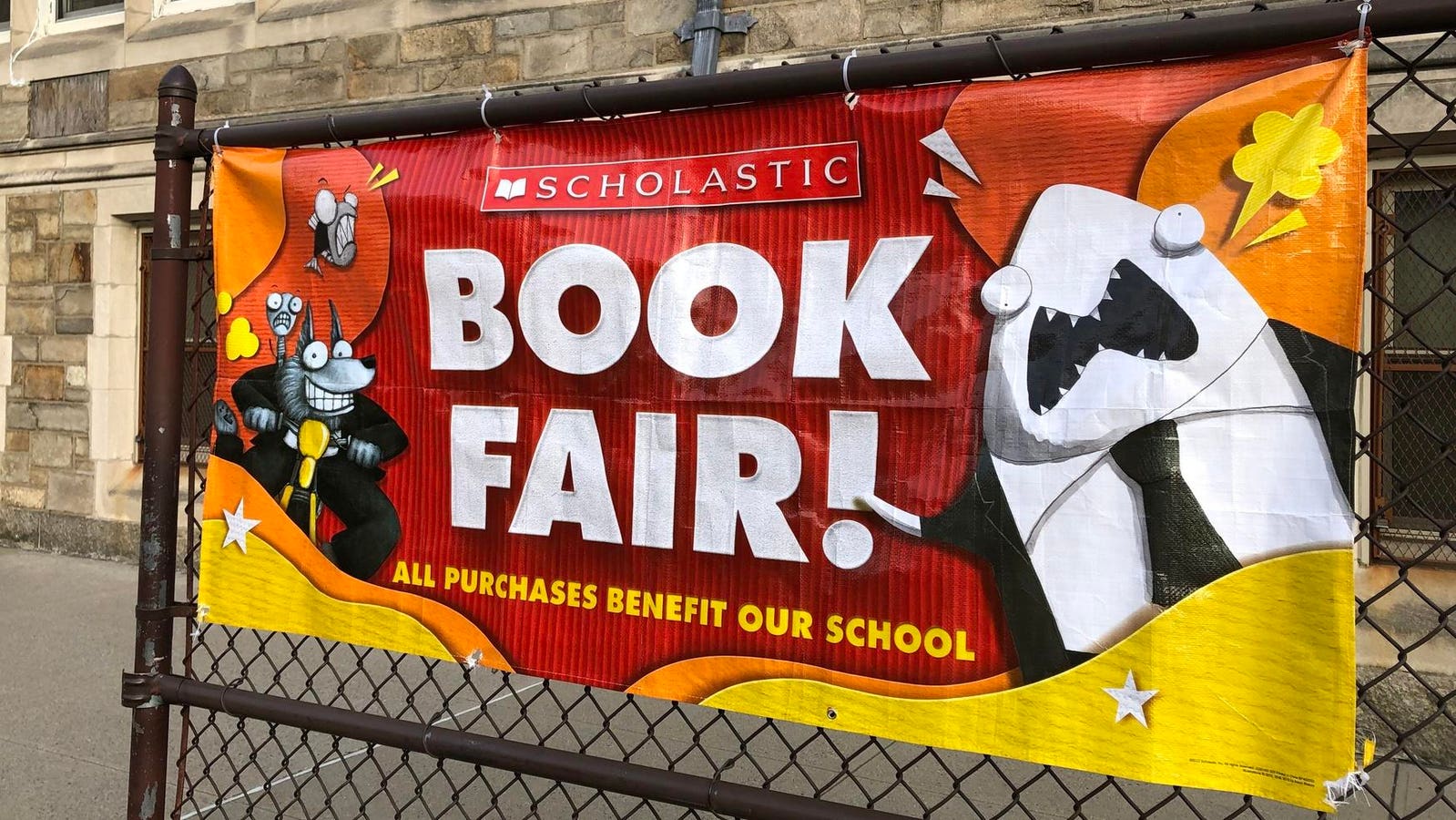
Topline
Literary organizations and authors are criticizing Scholastic this week for its announcement that it will offer certain books that feature themes of LGBTQ identities or race in an optional “Share Every Story, Celebrate Every Voice” collection as part of its elementary school book fair packages, meaning schools can opt out of selling these titles in light of state legislation and public scrutiny restricting these topics in schools.
Key Facts
Scholastic acknowledged its “Share Every Story, Celebrate Every Voice” collection—which includes biographies about former Rep. John Lewis, civil rights icon Ruby Bridges and Supreme Court Justice Ketanji Brown Jackson—isn’t “perfect,” but maintained offering these titles as a separate collection was intended to protect teachers and librarians from being fired or prosecuted, citing state laws restricting teaching about LGBTQ identities or racism in schools.
PEN America, however, a nonprofit advocating for literary freedom, urged Scholastic to find other solutions to “reject any role in accommodating these nefarious laws” and “being an accessory to government censorship.”
We Need Diverse Books, a nonprofit promoting diversity in literature, said Wednesday Scholastic failed to “stand up and fight for the rights of the marginalized” and considered it important for all children to see themselves represented in books, urging Scholastic to “desegregate” book fairs.
Some authors whose books were placed on the “Share Every Story, Celebrate Every Voice” collection criticized Scholastic, including The Girl in the Lake author India Hill Brown, who posted on X (formerly known as Twitter) that some readers have found her work through book fairs and stated some diverse authors will suffer from the lack of visibility.
Author Ernesto Cisneros, whose book Efrén Divided was placed in the diverse Scholastic collection, said he was “heartbroken” by Scholastic’s decision and stated he had dreamed of his books being included in book fairs nationwide.
Some librarians in search of alternatives to Scholastic have suggested partnering with local independent bookstores instead to host book fairs, School Library Journal reported.
Forbes has reached out to Scholastic for comment.
Key Background
Scholastic, the world’s largest publisher and distributor of children’s books, has held book fairs at schools throughout the United States since 1981, which reach 35 million children each year, according to Publishers Weekly. Scholastic provides books to schools, which host the book fairs and can raise funds for school supplies and reading materials. This year, before Scholastic publicly confirmed it had started offering the “Share Every Story, Celebrate Every Voice” collection, teachers and librarians reacted with confusion and anger on social media. In one Reddit thread in the “books” subreddit, which has been upvoted more than 1,600 times, a user criticized Scholastic for “capitulating to ultra-conservative groups that want to ban books.”
Contra
Scholastic has argued that its “Share Every Story, Celebrate Every Voice” collection allows these titles to continue to be offered and has stated its other option is to not offer these titles at all. Book packages for its middle school book fairs remain unchanged, according to Scholastic’s statement, and it said its “commitment remains unshakeable to publish and distribute stories representative of ALL voices.” Scholastic had been in communication with customers since August, and some schools had questions about how to safely hold a book fair amid a politically divisive climate, NPR reported. Thousands of schools have reportedly opted to offer the collection at book fairs in all 50 states.
Tangent
Scholastic’s announcement of a separate collection for diversity-focused books follow an increasing number of bans on books that cover topics like race or sexuality. A PEN America report found 1,477 instances of individual books banned during the first half of the 2022-23 school year, a 28% increase over the prior six months. The organization reported state and local laws are largely behind the bans, with the most impacted states being Texas, Florida, Missouri, Utah and South Carolina. Some laws that have influenced book banning include Florida’s “Parental Rights in Education Act”—more commonly known as the “Don’t Say Gay” law—which restricts education of sexual orientation and gender identity, and another Florida law that prohibits teaching material that may make students feel guilt based on their race or sex. Some educators have already faced consequences, like a Georgia fifth grade teacher who was fired in August after reading a book on gender fluidity to her class.
Big Number
$553.1 million. That’s how much revenue Scholastic book fairs held in the United States made in fiscal year 2023.
Surprising Fact
Books written by poet Amanda Gorman, former NFL quarterback Colin Kaepernick and openly queer dancer and singer JoJo Siwa are also reportedly among the titles included in the “Share Every Story, Celebrate Every Voice” collection.
Further Reading
U.S. book bans are taking a toll on a beloved tradition: Scholastic Book Fairs (NPR)
Banned in the USA: State Laws Supercharge Book Suppression in Schools (PEN America)
